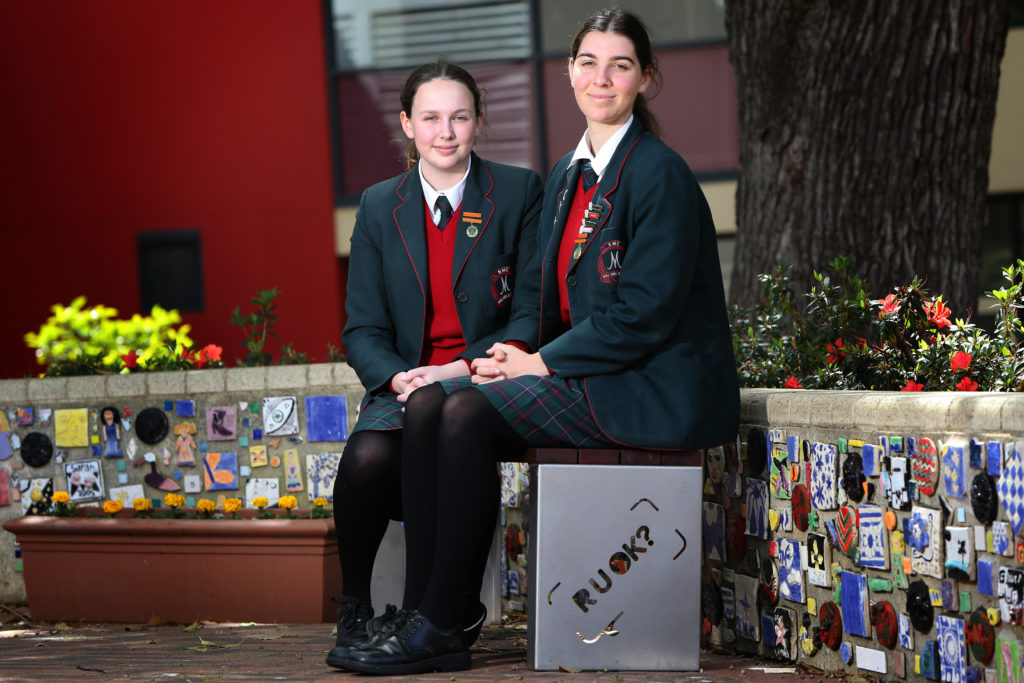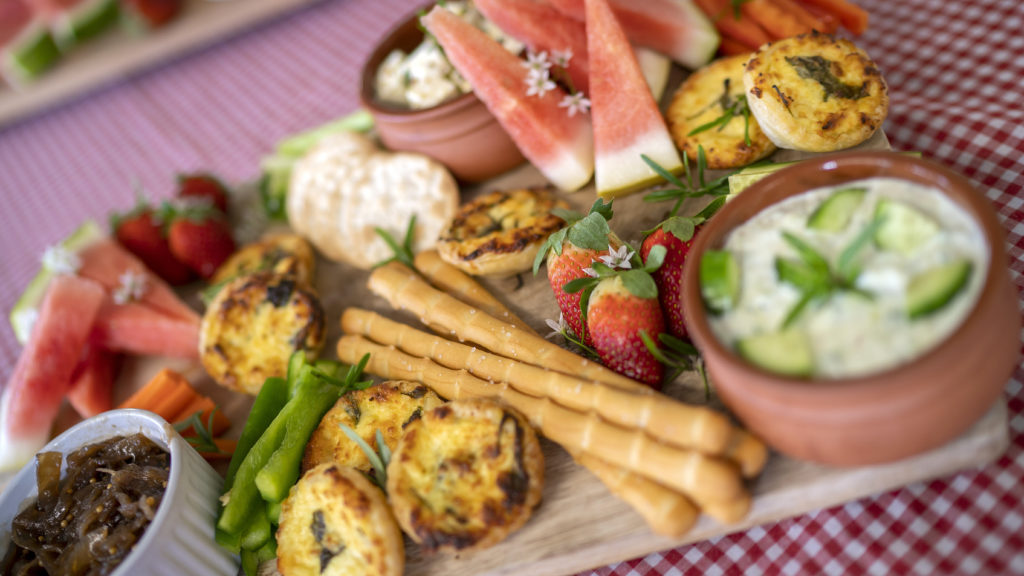A-Z of Positive Mental Health

Often when we talk about mental health we are talking about problems with mental health. That isn’t the full story. Mental health also includes the development of habits and practices that promote positive mental health.
Employing positive mental health strategies will not make us immune to down days, nor will it guarantee that we don’t experience mental health issues at some stage in our lives. However, it will make us more resilient and able to cope with the natural ups and downs of life.
These simple strategies offer us, and our children, the best possible start towards positive mental health.
A – Acknowledge the good in your life
Start and end every day with an acknowledgment of at least three things that are good in your life. Gratitude is proven to change the way we mentally and emotionally approach life.
B – Boundaries need to be clear
Our boundaries are the physical, emotional and psychological space we create between ourselves and others. They make clear what we will and will not accept. We need to set clear boundaries to keep us safe and allow authenticity in our relationships.

C – Connect with others
Forming and maintaining healthy connections with family, friends, and co-workers or school mates, is a protective factor against anxiety and depression. It also helps to boost self-esteem. It is generally acknowledged as one of the key factors in positive mental health.
D – Diet should be balanced
Our diet is everything we put into our bodies. It is the food we eat, the television we watch, the social media we absorb, and the conversations we have. The health of our body and mind relies on a balanced diet. In all things we need balance.
E – Learn emotional regulation strategies
Emotional regulation is the process of recognising, labelling and soothing our emotions. Some of those self-soothing techniques come naturally, like sighing or crying, but some can be learnt.
F – Foster healthy friendships
Good friends, who respect our boundaries and care for us, provide connection and companionship. They are strong protective forces in our lives.
G – Develop a growth mindset
A growth mindset is a belief that given time we can learn anything. This approach stops us from feeling trapped and controlled by some predetermined fate.
H – Helplines are really valuable
There are so many helplines available. Most are attended by qualified, caring people. Sometimes it helps to talk to a stranger with the skills necessary to advise us. There are also text helplines for people who prefer text to a phone call.

I – Involve yourself in activities outside of school
Involvement in groups and activities outside of school, or work, stop us being too heavily weighed down by the inevitable negatives that sometimes occur during the working day.
J – Journal thoughts and feelings
“Writing in a journal activates the narrator function of our minds. Studies have suggested that simply writing down our account of a challenging experience can lower physiological reactivity and increase our sense of wellbeing, even if we never show what we’ve written to anyone else.” Daniel J Siegel
K – Keep active and fit
Exercise is a natural way to instantly lift mood. By maintaining fitness, we are also better equipped to fend off illnesses that drag us down physically and emotionally.
L – Listen to your body
The noise of daily life sometimes blocks out the messages our body is giving us, like the need to rest, eat well or exercise. Listen to your body.
M – Mentors make a difference
Suitably equipped friends, family, mentors, counsellors, and psychologists can all help us see life and our challenges from a new perspective. Often, just talking can make a difference in the way we feel.
N – Negative thoughts can be challenged
Everyone has negative thoughts, it’s what we do with them that makes the difference. We can choose to let them just flow through. We do not need to give them our attention or hold onto them.

O – Optimism can be learnt
Learnt optimism involves challenging negative self-talk and replacing pessimistic thoughts with more positive ones. It is often contrasted with learnt helplessness. We can make a habit of looking for the good in life and positive thinking.
P – Practise self-care
Self-care isn’t all manicures and massages. It is doing the work to make sure we are physically and emotionally healthy and there is balance in our lives.
Q – Quietly reflect
Life is busy and loud. Quiet reflection allows us the opportunity to rest and recharge. It also allows us the space and opportunity to make meaning of the chaos and focus on what is important.
R – Ritual and routine help build resilience
Rituals provide time where decisions don’t need to be made, anxious feelings are quietened and there is a sense that you belong to something bigger than yourself. You are connected and safe. Rituals keep you centred, even in uncertain times. Similarly, routines give us structure which is valuable when we are facing challenges.
S – Develop sleep routines
Sleep is often the most underestimated factor in positive mental health. Good sleep habits include getting enough sleep and having regular routine in our sleep.
T – Talk with trusted adults
Understandably, children and teens often want to confide only in their friends. However, adults offer advice and perspective that comes with experience. It is important that kids are aware, and acknowledge, that adults are important in this sphere.

U – Understand mental health
When we understand what creates positive mental health, we have a greater chance of managing it. We should also be aware of the signs of mental health problems and how to access help.
V – Visit nature regularly
Regular time in nature has been shown to evoke positive emotions as well as developing individual resilience. It is useful as a way of counteracting some of the symptoms of mental ill-health.
W – Own your worthiness
You are worthy, you are loved, and you are enough. Own that. Don’t let others define or devalue you. When you feel worthy you are more likely to have healthy boundaries and look after yourself.
X – eXpress your emotions
All emotions are valid and serve a function. We can’t bury our emotions deep inside us, they always come out in the end. We need to talk to suitably equipped people when we have problems. It is also important to share and celebrate the positives in life.
Y – Yoga and meditation are powerful mindfulness tools
Mindfulness is the process of consciously listening to your thoughts and being aware of which ones are useful and which ones aren’t. Mindfulness tools keep the mind in the present and stop us worrying about the future or dwelling on the past.
Z – Zoom out and see the big picture
Sometimes we get caught up in the little details of life. By zooming out we can reframe those experiences and see them in a wider context.

With Laurissa Knowles From Valley Depths to Mountain Peaks (1993)
Laurissa Knowles (1993) has had an incredible career journey so far, from Santa Maria College Teacher to Celebrant and Councillor.

Elevating Spaces: Diana Ellis’ Signature Touch & Architecture Magic
What happens when you mix a love for art, travel, nature, and creativity with construction and building? You get the essence of Diana Ellis’ career!

The Power of Expectations in Shaping Student Success – Jennifer Oaten
Discover the transformative impact of expectations on student success. Learn how belief shapes outcomes in education and beyond.
- Featured, MentalHealthStrategy
Author: Santa Maria College
Santa Maria College is a vibrant girls school with a growing local presence and reputation. Our Mission is to educate young Mercy women who act with courage and compassion to enrich our world. Santa Maria College is located in Attadale in Western Australia, 16 km from the Perth CBD. We offer a Catholic education for girls in Years 5 – 12 and have 1300 students, including 152 boarders.






